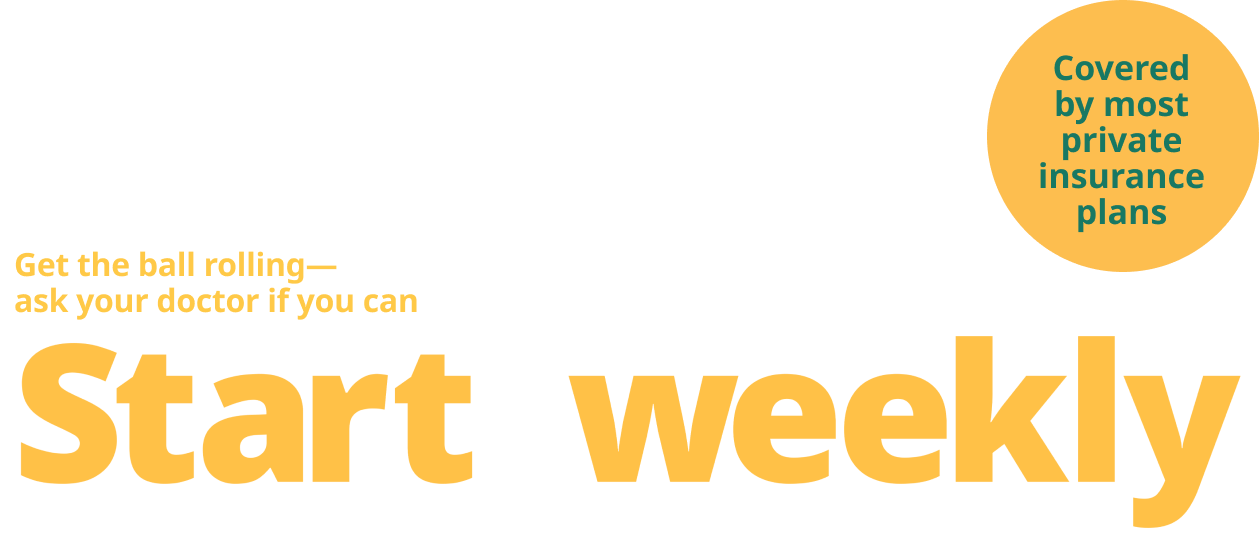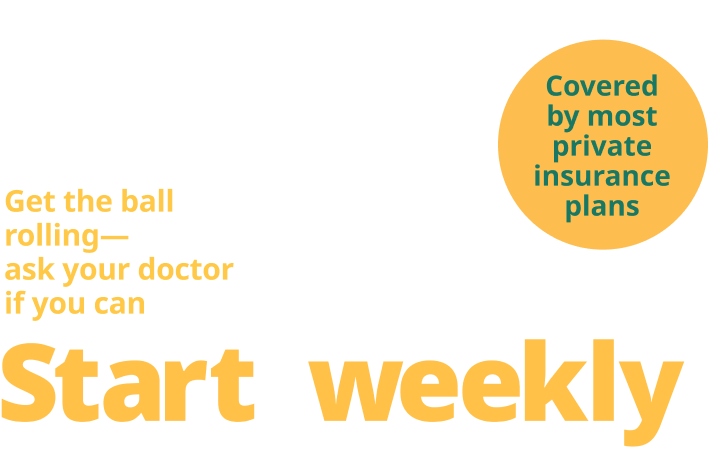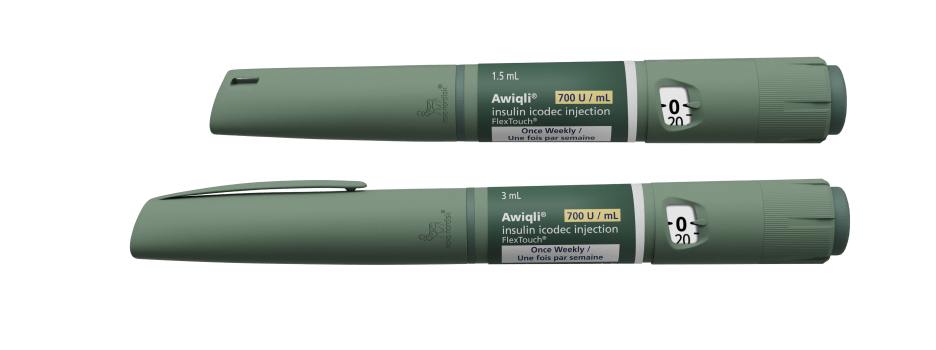Awiqli® is the first and only once-weekly insulin*
* Clinical significance has not been established.








What is Awiqli®?
(pronounced A-week-ly)
Awiqli®, or “insulin icodec”, is a long-acting basal insulin administered once per week.
Awiqli® is similar to the insulin made by your body, and helps your body to reduce your blood sugar level and maintain it over 7 days (until your next scheduled dose).
With Awiqli®, you will take one injection each week on the same day, with or without food. You can schedule your injection on the same day of the week as another activity.
Awiqli® offers convenient once-weekly dosing
Awiqli® comes in the easy-to-use prefilled FlexTouch® pen.

Start Awiqli®
Watch the Awiqli® video
How a treatment journey with once-weekly Awiqli® begins
Your healthcare professional decides:
- Your initial dose of Awiqli®
- When to measure your blood sugar levels and how to adjust your dose based on the results
As with any insulin, there is a chance that your blood sugar may get too low when you take Awiqli®. This is called hypoglycemia, and it happens when you either have too much insulin or not enough sugar in your body. It may also happen if you drink alcohol, exercise more than usual, eat too little, or miss a meal.
For most people, hypoglycemia happens when your blood sugar is an alert value of <3.9 mmol/L. Measuring your blood sugar regularly will tell you if your blood glucose is too high or too low.
Warning signs of hypoglycemia can include headache, fast heartbeat, feeling sick or very hungry, cold sweat or cool pale skin, short-lasting changes in your sight, tremor or feeling nervous or worried, feeling unusually tired, weak, and sleepy, slurred speech, feeling confused, difficulty concentrating.
To help reduce the risk of getting low blood sugar, it is important to take your insulin as instructed by your healthcare team, and to let them know if you want to change your diet or exercise routine.
For most people, hypoglycemia happens when your blood sugar is an alert value of <3.9 mmol/L. Measuring your blood sugar regularly will tell you if your blood glucose is too high or too low.
Warning signs of hypoglycemia can include headache, fast heartbeat, feeling sick or very hungry, cold sweat or cool pale skin, short-lasting changes in your sight, tremor or feeling nervous or worried, feeling unusually tired, weak, and sleepy, slurred speech, feeling confused, difficulty concentrating.
To help reduce the risk of getting low blood sugar, it is important to take your insulin as instructed by your healthcare team, and to let them know if you want to change your diet or exercise routine.
